Andrew M. Wells
Rice University
Stochastic Games for Interactive Manipulation Domains
Mar 07, 2024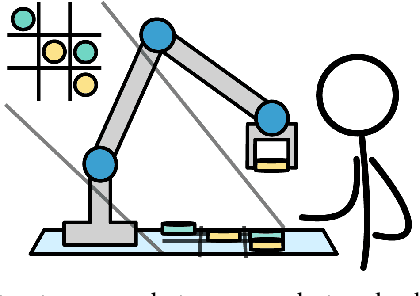
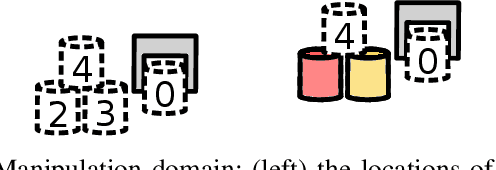
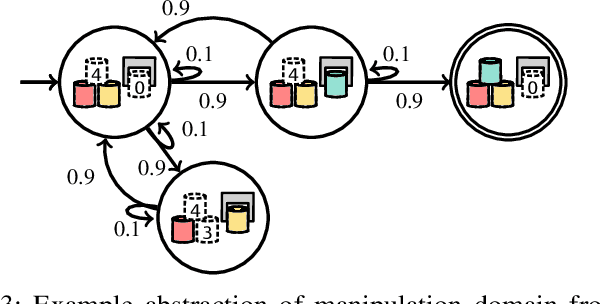
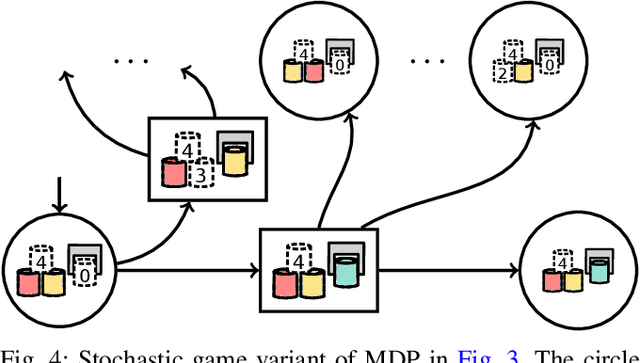
Abstract:As robots become more prevalent, the complexity of robot-robot, robot-human, and robot-environment interactions increases. In these interactions, a robot needs to consider not only the effects of its own actions, but also the effects of other agents' actions and the possible interactions between agents. Previous works have considered reactive synthesis, where the human/environment is modeled as a deterministic, adversarial agent; as well as probabilistic synthesis, where the human/environment is modeled via a Markov chain. While they provide strong theoretical frameworks, there are still many aspects of human-robot interaction that cannot be fully expressed and many assumptions that must be made in each model. In this work, we propose stochastic games as a general model for human-robot interaction, which subsumes the expressivity of all previous representations. In addition, it allows us to make fewer modeling assumptions and leads to more natural and powerful models of interaction. We introduce the semantics of this abstraction and show how existing tools can be utilized to synthesize strategies to achieve complex tasks with guarantees. Further, we discuss the current computational limitations and improve the scalability by two orders of magnitude by a new way of constructing models for PRISM-games.
LTLf Synthesis on Probabilistic Systems
Sep 23, 2020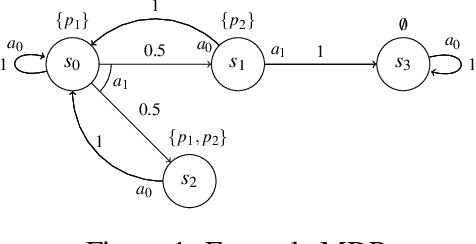

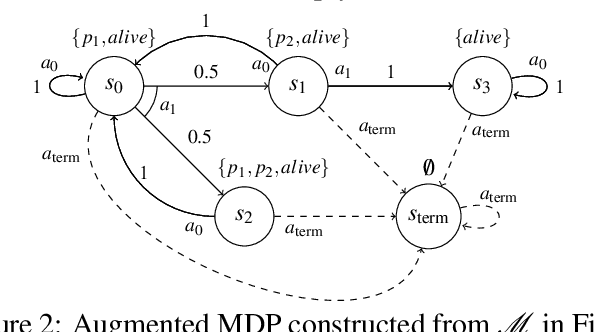
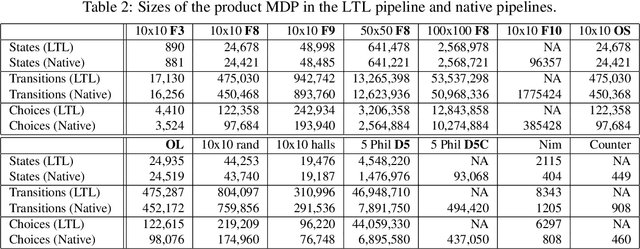
Abstract:Many systems are naturally modeled as Markov Decision Processes (MDPs), combining probabilities and strategic actions. Given a model of a system as an MDP and some logical specification of system behavior, the goal of synthesis is to find a policy that maximizes the probability of achieving this behavior. A popular choice for defining behaviors is Linear Temporal Logic (LTL). Policy synthesis on MDPs for properties specified in LTL has been well studied. LTL, however, is defined over infinite traces, while many properties of interest are inherently finite. Linear Temporal Logic over finite traces (LTLf) has been used to express such properties, but no tools exist to solve policy synthesis for MDP behaviors given finite-trace properties. We present two algorithms for solving this synthesis problem: the first via reduction of LTLf to LTL and the second using native tools for LTLf. We compare the scalability of these two approaches for synthesis and show that the native approach offers better scalability compared to existing automaton generation tools for LTL.
* In Proceedings GandALF 2020, arXiv:2009.09360
 Add to Chrome
Add to Chrome Add to Firefox
Add to Firefox Add to Edge
Add to Edge